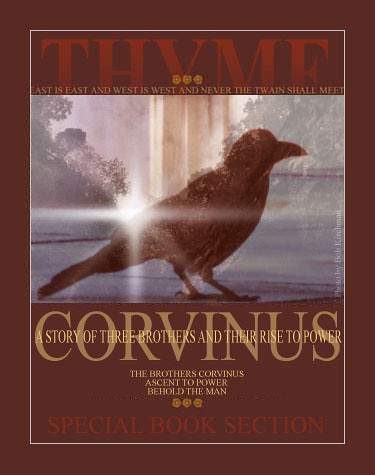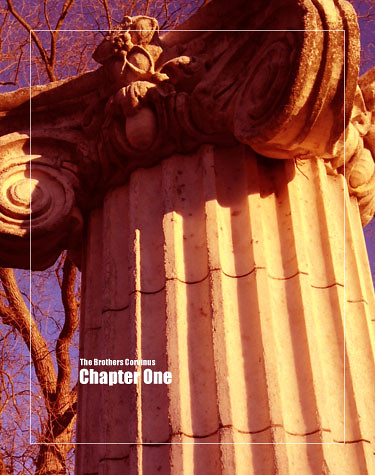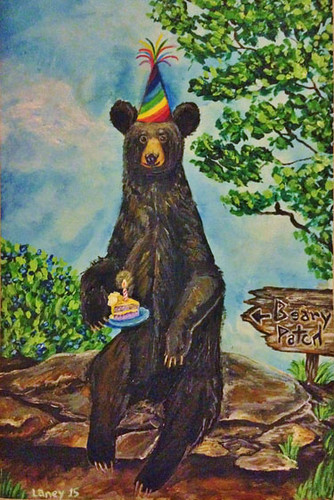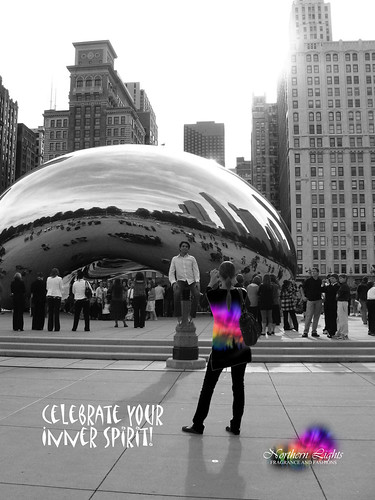
Volume XI, Issue XX

The Brothers Corvinus
The Sequel to PONTIFUS and
NOVUS VIA
By Bob Kirchman
Copyright © 2016, The Kirchman Studio, all rights reserved
Friendship is born at that moment when one person says to another: What! You too? I thought I was the only one.” – C. S. Lewis
You are never too old to set another goal or to dream a new dream” – C. S. Lewis.
I have found a desire within myself that no experience in this world can satisfy; the most probable explanation is that I was made for another world.” – C. S. Lewis
Everyone must leave something behind when he dies, my grandfather said. A child or a book or a painting or a house or a wall built or a pair of shoes made. Or a garden planted. Something your hand touched some way so your soul has somewhere to go when you die, and when people look at that tree or that flower you planted, you're there. It doesn't matter what you do, he said, so long as you change something from the way it was before you touched it into something that's like you after you take your hands away. The difference between the man who just cuts lawns and a real gardener is in the touching, he said. The lawn-cutter might just as well not have been there at all; the gardener will be there a lifetime." – Ray Bradbury, Fahrenheit 451
Mister Bultitude’s birthday celebration was going on. The little college always celebrated this event, beginning on November 22 and ending on November 29th. In a happier time, the event was always punctuated by Thanksgiving Break, and the students would return to their families and more festivities. This was actually a celebration initiated by Mrs. Greene and the great bear was feted with her famous blueberry cake. The students would read C. S. Lewis’s ‘The Abolition of Man’ in preparation and they would use the old Gothic chapel as a backdrop as they acted out portions of the novel “That Hideous Strength.”
In happier times, the female students would fill the roles of Jane, Mother Dimble, Ivy Maggs and Major Hardcastle, but now there were only the few men remaining, so the dramatic readings were more subdued. In any case, Lewis’s dystopia had become all too real and this portion of the celebration now loomed even more as a call to action. They were still carried out in the evening with the great window of the chapel illuminated from within and soft “blue” lighting on the old stone without.
Ransom’ explained to Mátyás that his pseudonym was actually lifted from the book and he felt it really described his life. There was a clear picture in his mind of how the Magnificent One had ‘become sin’ for him and had indeed lovingly renewed his twisted life. ‘Ransom’ was not his real name at all. The hard-living maintenance supervisor of the college had retreated there from a failed marriage and failed recovery from substance abuse. Finally, in the climate of giving love and high expectations provided by the college shops, he had been clean for five years at the time of the disappearances. Even on warm days, he always wore an old sweater. He dressed for dinner in a long-sleeved jacket and tie. Anticipating the question he explained that he had been a special forces operative in his younger days... a tough man who had killed people. His arms were covered with tattoos!
Sadly, ‘Ransom’ had resisted the underlying Source of that love and felt he had simply had a ‘lucky break’ in coming here. He silently kept the walls up to prevent his consideration of any absolute unseen realities, but Greene, the president of the college, had planted a seed. It took root in the days following Greene’s mysterious departure, and now ‘Ransom’ was indeed the heir of his great work. Indeed it was the LOVE, freely extended by the residents of this place, to the broken girls as they learned the perfumer's art and fashion design and to him and his fellow maintenance men. Sometimes you'd find yourself working alongside a man like Zimmerman, who had built the great bridge, but he picked up litter and changed light bulbs with the rest of the crew. It was a community, Greene had said, not unlike that of the American frontier days. Everyone cared for everyone else. There was what Greene would call an overwhelming sense of IMAGO DEI, the stamp of the Divine on each member of the little village.
We are all wounded adopted children of the Master,” ‘Ransom’ said to Corvinus one evening as they strolled to the refectory. “Your conflicted feelings are not necessarily reflective of what is true about you, but they speak of areas where you might seek healing. All of us here have a story and if we examine ours with some honesty, we will see the Master speaking into it. We fit badly into this world, it is true, but let me tell you a secret… we were made for a better world!”

Illustration by Kristina Elaine Greer.
Mátyás Corvinus had been born in Hungary. He was the oldest of three brothers and the three became known in their village for their daring exploits. Mátyás was the thinker. Middle brother Alexey was the one who often led them into great adventures and the youngest was reflective in a different manner. As youths, the three had managed to make their way across the Eurasian continent one summer hiding in rail cars. That this feat was considered quite impossible fired a bit of a legend about them in the minds of their fellow villagers. The Summer that the boys simply disappeared, only to show up in Madagan, far into Siberia, earned them not only beatings from their abusive father, but the unspoken admiration of every adolescent in their circle.
At university, the three excelled at football (soccer) and their studies. Mátyás studied Government and Philosophy, Alexey business and finance and the youngest gravitated toward theology and Philosophy. Alexey entered government as the others continued their studies. He served in the local assembly as he built a small communications company. Eventually He became the Prime Minister and the owner of most of the wireless network serving the Bering Strait Bridge Highway in Siberia.
The youngest became a priest in Poland and eventually was in the College of Cardinals. He was considered to be in line for the Papacy by some.
Mátyás, upon his graduation from university, was appointed as an ambassador to the United Nations by his brother. Here is charm and ambition set him on a path that would likely have him in line to be Secretary General one day. There were a few millionaire-philanthropists who longed to build a world federal state. They saw the brothers Corvinus as the means to that end. The silent investment of their new ‘partners’ insured that everything the brothers touched turned to gold.
Their path assured, the brothers Corvinus enjoyed all the pleasures and prestige this world had to offer. Their ‘handlers’ groomed them for a world crisis where they would take charge and offer solutions. When certain world leaders and the bulk of opposition were overcome, they would make their move.
That opposition became more and more defined in the years proceeding the ‘disappearances.’
Summarized, they might be seen as those who believed in any sort of reality greater than what was seen. Religion was useful to control human behavior, but dangerous if it motivated one to believe that there were things worth dying for. God, country and family could motivate those who loved them to reckless sacrifice.
Besides, such oversight of the human condition was easy to cast as ‘oppressive.’ You couldn’t enjoy the rich pleasures of the world because of archaic restraints. Many young people were all too ready to cast off the chains of restraint and define their lives in new ways. Society could now engineer the reality to match one’s personal preferences and ‘old thought’ stood squarely in the path of progress.
Government could better care for human needs and reduce the pull such philosophies had on their followers. Replace the community coming together to rebuild a barn or care for a sick child with a centralized solution and you dulled the pull of localism and faith. Though initially there would be sacrifices to be made, the more equitable distribution of resources through a centralized state would usher in a brave new world. All would be equal (though those who built the new world should enjoy reward for doing so). Refocus those individuals who sought significance through martyrdom into ‘enforcers’ of the new world order and you took that which created chaos and turned it to promoting peace!
As the United Nations continued to degenerate into an unruly collection of representatives for the despots of the world, Mátyás created the Centre for World Peace on the banks of the Euphrates and Tigress Rivers to begin this final solution to the world’s woes.
The problem that wouldn’t go away was the ‘thinkers’ who persisted in the notion that a ‘better world’ awaited them beyond what they saw. The disappearances had indeed decimated their ranks, but there appeared to be resistance still. The failed attempt to destroy Israel had resulted in the displacement of Mátyás Corvinus and his great work. His return to the Middle-East to suppress the opposition had resulted in something no one but the troublesome ‘Divine’ could have anticipated.
The three-legged stool of power was wobbling awkwardly. The leader of the Centre for World Peace and his crew were missing. Resources were concentrated by Alexey and Worldstate officials in the Middle-East. Israel was suspected in the disappearance of Corvinus, but in actuality knew nothing of it. Their investigation was thorough and convincing. They shared their findings freely with Worldstate.
Of course, the remaining brothers KNEW the likely true cause of their brother’s disappearance and as Worldstate bore down on followers of ‘The Way,’ they restrained their violence and sought to learn more of the structure of the group. Indeed it seemed to be centered in those nations which still practiced religious freedom, such as Israel and Kurdistan, rather than the more enlightened way of ‘tolerance,’ where you could freely practice your beliefs but you had better not interject them into the workings of the greater society. The violence of suppressing ‘The Way’ was temporary anyway and if they would just return Mátyás Corvinus, dead or alive, they would be eventually eliminated in due time. For now, it was necessary to keep open some channels of communication, for indeed it was likely that the eldest Corvinus was a hostage… and his life was in great danger.
What made the work of tracking down ‘The Way’ was the absence of wireless communication. Monitoring hard-wired infrastructure yielded nothing as well. Worldstate was at a loss. A movement that did not build itself on social media or public media was something no-one could monitor. Friend told friend. Books of Holy Scripture were not being printed. That was controlled by the government now. Men like ‘Ransom’ would learn passages and recite them verbally for their pupils in various places. These people would copy them and learn them for themselves, destroying the paper version when it was securely in their own minds. The verses contained in the ‘Notes to Priscilla and Aquilla” would be committed to memory, but the book itself was simply used as a guide to them. Many ‘Priscilla and Aquilla’ groups were meeting now with no visible evidence of that work in hand, simply the knowledge it guided to committed to the heart.
Though various threats and rewards were put forth by Worldstate, the likely fact that Mátyás was a hostage resulted in an effective truce. Local ‘enforcers’ still took it upon themselves to kill followers of ‘The Way,’ but official persecution was at a standstill.
Who wrote the “Notes to Priscilla and Aquilla?” Matyas asked ‘Ransom’ in one of their evening strolls together. He was surprised to be told: “We really don’t know. It is pretty certain that Dr. Greene DIDN’T write it, but it is suspiciously similar to the writings of his wife. She was a gifted novelist among other things, but no-one can be certain. In any case, there was a certain desire that the work be anonymous.
We have been looking at the Letters of Paul and Peter in our formal classes and how modern thinkers want to assign multiple-authorship and such to diminish their importance. All of these thinkers forget that the works were dictated and there was a certain desire of the human author to stand out of the way of the Divine revelation. Though our little guide is certainly NOT Divine in authorship, we see its anonymity as trying to stand out of the way of Divine revelation as well. That is why we use it to guide us to Scripture, then we purposefully discard it as we let Scripture teach us deeper things about itself.
You and ‘Joe’ here are on a path so that you yourself will be the guides… sort of like the book ‘Fahrenheit 451, where the books are banned and the people ‘become’ the books. [1.] That is the purpose of the wretched memorization, for one day you will leave here and carry nothing with you on your person to identify you as one of us.” Joe interjected: “so, will we teach what is inside us or simply answer questions from this reservoir or knowledge? How exactly will our fellow pilgrims be able to use what we have preserved?”
Ransom’ Answered: “We are purposefully vague about that process because we see it as requiring the direction of that same Spirit that made this knowledge available to us in the first place. If we were to prescribe a method, we might perchance find ourselves unwittingly suppressing a move of that same Spirit. Joe, you and Mátyás are both examples of a conversion that occurred outside of the ‘normal’ way of doing things. I think if you look at your own stories you will discover what I mean.”

Many people never realized that the 'Northern Lights' fashions and cosmetics were actually produced in Big Diomede...

...largely due to a very cosmopolitan advertising strategy.
(to be continued) [click to read]





No comments:
Post a Comment